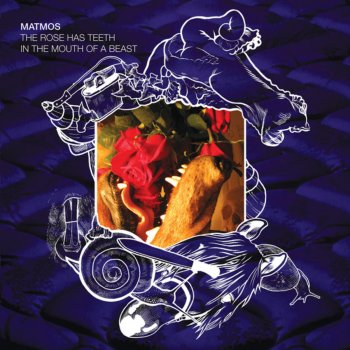Roses and Teeth for Ludwig Wittgenstein - Matmosперевод на немецкий
"A
new
born
child
has
no
teeth."
"Ein
neugeborenes
Kind
hat
keine
Zähne."
"A
goose
has
no
teeth."
"Eine
Gans
hat
keine
Zähne."
"A
rose
has
no
teeth."
"Eine
Rose
hat
keine
Zähne."
This
last
at
any
rateâ
Dieses
letzte
jedenfalls
–
One
would
like
to
sayâ
Möchte
man
sagen
–
Is
obviously
true!
Ist
offensichtlich
wahr!
It
is
even
surer
that
a
goose
has
none.
Es
ist
sogar
sicherer,
dass
eine
Gans
keine
hat.
And
yet
it
is
none
so
clear.
Und
doch
ist
es
keineswegs
so
klar.
For
where
should
a
rose's
teeth
have
been?
Denn
wo
sollten
die
Zähne
einer
Rose
gewesen
sein?
The
goose
has
none
in
its
jaw.
Die
Gans
hat
keine
in
ihrem
Kiefer.
And
neither,
of
course,
has
it
any
in
its
wings;
Und
natürlich
hat
sie
auch
keine
in
ihren
Flügeln;
But
no
one
means
that
when
he
says
it
has
no
teeth.
Aber
niemand
meint
das,
wenn
er
sagt,
sie
habe
keine
Zähne.
Why,
suppose
one
were
to
say:
Nun,
angenommen,
man
würde
sagen:
The
cow
chews
its
food
and
then
dungs
the
rose
with
it,
Die
Kuh
kaut
ihre
Nahrung
und
düngt
dann
die
Rose
damit,
So
the
rose
has
teeth
in
the
mouth
of
a
beast.
Also
hat
die
Rose
Zähne
im
Maul
eines
Tieres.
This
would
not
be
absurd,
Das
wäre
nicht
absurd,
Because
one
has
no
notion
in
advance
where
to
look
for
teeth
in
a
rose.
Weil
man
im
Voraus
keine
Ahnung
hat,
wo
man
bei
einer
Rose
nach
Zähnen
suchen
soll.
(Connexion
with
"pain
in
someone
else's
body".)
(Verbindung
mit
"Schmerz
im
Körper
eines
anderen".)
Оцените перевод
1
Roses and Teeth for Ludwig Wittgenstein
2 Steam and Sequins for Larry Levan
3 Tract for Valerie Solanas
4 Public Sex for Boyd McDonald
5 Semen Song for James Bidgood
6 Snails and Lasers for Patricia Highsmith
7 Germs Burn for Darby Crash
8 Solo Buttons for Joe Meek
9 Rag for William S. Burroughs
10 Banquet for King Ludwig II of Bavaria
11 Kendo for Yukio Mishima
2 Steam and Sequins for Larry Levan
3 Tract for Valerie Solanas
4 Public Sex for Boyd McDonald
5 Semen Song for James Bidgood
6 Snails and Lasers for Patricia Highsmith
7 Germs Burn for Darby Crash
8 Solo Buttons for Joe Meek
9 Rag for William S. Burroughs
10 Banquet for King Ludwig II of Bavaria
11 Kendo for Yukio Mishima
Внимание! Не стесняйтесь оставлять отзывы.
